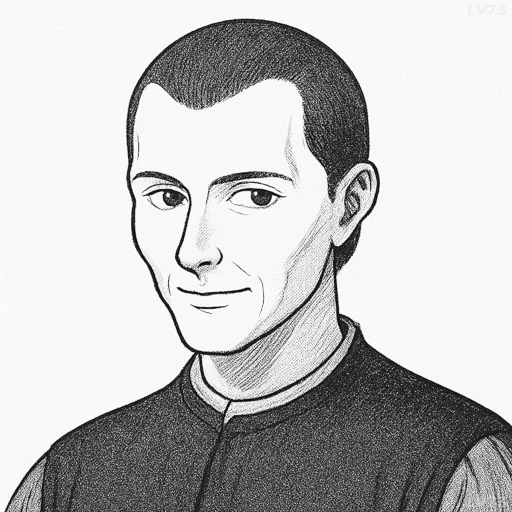“God is not willing to do everything, and thus take away our free will and that share of glory which belongs to us.”

- May 3, 1469 – June 21, 1527
- Born in the Republic of Florence (Italy)
- Political thinker and diplomat
table of contents
Quote
“God is not willing to do everything, and thus take away our free will and that share of glory which belongs to us.”
Explanation
In this quote, Niccolò Machiavelli presents an idea about free will and human agency in the context of divine will. He suggests that God deliberately refrains from acting in every situation, leaving room for human beings to exercise their own will and make choices. By doing so, God allows individuals to have a role in shaping their own destinies and to claim the glory for their own actions. The implication is that if God were to intervene in every aspect of human life, it would strip individuals of their autonomy and moral responsibility. Instead, humans are given the freedom to act and, by doing so, to earn recognition for their successes or failures.
Machiavelli’s view is closely aligned with his pragmatic and secular perspective on politics and human nature. He often argued that humans should not rely on divine intervention or miraculous events but instead should take responsibility for their own actions. In his work, particularly in The Prince, Machiavelli emphasizes the importance of human initiative and the idea that rulers must act with decisiveness and strategy in order to achieve their goals, rather than waiting for divine help or waiting for circumstances to change on their own. The quote reflects his broader philosophy that human beings, not divine forces, are the ultimate agents of their own destiny and that glory and success come from human effort and wisdom rather than divine intervention.
In modern terms, this quote can be understood as a reminder of the importance of personal responsibility and the value of free will in shaping one’s life and success. While many people may turn to external forces—be it religion, fate, or luck—Machiavelli stresses that individuals must act with purpose and resolve to influence their own futures. This perspective can be seen in the way leaders or entrepreneurs are expected to take initiative, make decisions, and seize opportunities, rather than waiting for circumstances to unfold on their own. In a broader philosophical context, Machiavelli’s statement also touches on the ongoing debate about determinism versus free will, where he advocates for the notion that human beings must take responsibility for their own actions and moral choices, rather than relying on divine will or predestination.
Would you like to share your impressions or related stories about this quote in the comments section?


